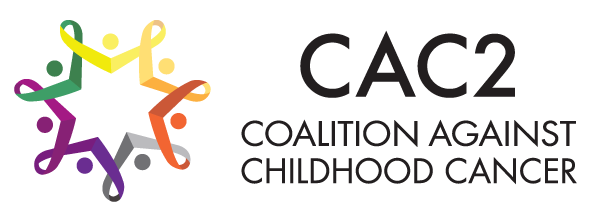Assorted news from last week:
Study finds no link between Body Mass Index and thyroid cancer in teens with nodules.
When acute myeloid leukemia (AML) relapses, it is more difficult to treat and outcomes are dismal. Scientists at St. Jude Children’s Research Hospital have discovered a mutation in pediatric AML that physicians can use to identify high-risk patients and better guide treatment.
Upcoming Webinars and Online Opportunities:
On February 22 from 2-3pm/ET, join the Children’s Brain Tumor Network (CBTN)’s operations center team as they address questions and technical issues related accessing CBTN data and conducting research within the Gabriella Miller Kids First Data Resource Portal, CAVATICA, and PedcBioPortal. On Friday, February 25 at 1:00 ET, just ahead of the international observance of Rare Disease Day, the NIH Common Fund-supported Gabriella Miller Kids First Data Resource Center (Kids First DRC) invites you to join a virtual Community Open House event, to learn more about the incredible resources available to the pediatric research community. Registration Link. Rare Disease Day at NIH will be held virtually on Monday, Feb. 28, 2022, from 10 a.m. to 6 p.m. EST. This year’s event will feature panel discussions, rare diseases stories, virtual exhibitors and scientific posters. Registration and Information Link. FDA is hosting a virtual public meeting on March 4, 2022, 9:00 am to 4:30 pm EST in honor of Rare Disease Week. They’ve planned for various stakeholders to share their perspectives/experiences in rare disease product development. Please visit the public meeting page to register.
Recordings of Recent Past Events:
- Nick Giallourakis (Steven G. Cancer Foundation and Elephants & Tea)
The Role of Risk Prediction Models in Guiding Cardio-Oncology Care, hosted by Sophia’s Hope.
Take Action:
Childhood Cancer Prevention Day will be held on Monday, February 28. Help share why PREVENTION MATTERS. Access the social media toolkit here: https://www.prep4gold.org/prevention. World Rare Disease Day is celebrated on February 28th (or 29th in leap years)—the rarest day of the year. This is a global movement to raise awareness for people living with a rare disease, their families, and caregivers. Visit RareCaregivers.org for information and support for caregivers of loved ones living with rare diseases. Be sure to follow and like CAN on Twitter, Facebook, and Instagram and help us spread the word about #RareCaregiverAnd. Kaitlin Tuinstra (ktuinstra@msp.edu), a current clinical psychology doctoral student at the Michigan School of Psychology is studying the effects of family functioning on medication adherence in pediatric cancer patients. Please contact her if you are a “parents of children (age 8-17) who have been diagnosed with any form of pediatric cancer and are actively undergoing treatment or disease maintenance” if you would consider completing “a ~20 minute online survey to share their experience of family functioning, condition management, and medication adherence. This study has been approved by the Michigan School of Psychology Institutional Review Board (study #210701).” Parexel, a global leading contract research organization (CRO), has recently created a new Patient Advocacy Manager role to ensure that patient voice and insights are included in all aspects of clinical research. As they build out this new role, they want to make sure they are designing it with the needs of Patient Advocacy Groups and Patient Communities in mind. They ask that you please take a few minutes to answer the seven questions in this survey: https://www.surveymonkey.com/r/2P3FZLB? All answers are anonymous.



